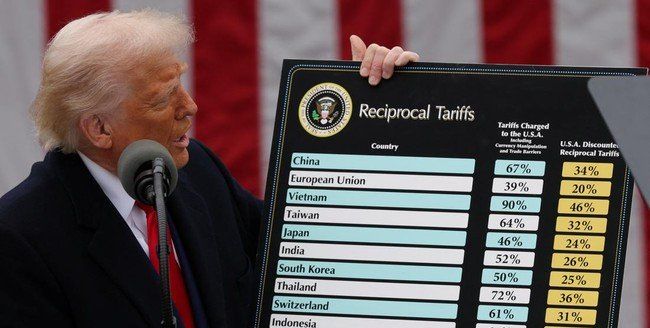The ongoing tariff war between two global giants, the United States and China, has created significant challenges for various economic sectors worldwide, including Indonesia.
Indonesia, particularly within the tech sector, heavily relies on imported components and international trade relationships. So, what are the implications?
New policies implemented by the United States, including a 32% tariff on goods from Indonesia, have impacted Indonesia’s ability to import crucial tech components.

Read Also:
Directly, this affects the telecommunications and information technology industries, leading to increased production costs. Additionally, higher tariffs on tech products from countries like China, Japan, and South Korea also disrupt the tech supply chain in Indonesia.
Generally, in my view, Indonesia is still not self-sufficient and dependent, as several services and products rely on other countries. However, amidst these challenges, there is an opportunity for Indonesia to strengthen its domestic tech sector.
As experts suggest, Indonesia can leverage this situation to promote the development of local digital services and reduce dependency on foreign technology. For instance, adopting open-source-based services could be an optimal solution to enhance Indonesia’s digital independence.
The current tariff war poses significant challenges for Indonesia’s tech sector but also opens avenues for strengthening digital independence and local innovation. With the right steps, Indonesia can turn these challenges into opportunities to build a stronger and more sustainable tech ecosystem.
However, the question remains: Is Indonesia ready for this, or will it continue to rely on superpowers like the US and China? Time will tell, as the US and China still dominate our market with substantial influence in the global tech industry.
Companies such as Microsoft, Google, Apple (from the US), and Huawei, Alibaba, and Tencent (from China) provide hardware, software, and services that form the backbone of many sectors in Indonesia. Although open-source could be a solution, there are currently few alternative technologies from other countries that can replace the dominance of the US and China.
If the tariff war continues, small and developing countries will likely face the highest impact, not just Indonesia but many others, as this issue is not confined to our nation but is a global phenomenon.
Have you felt the effects of this tariff war? Share your thoughts below.






